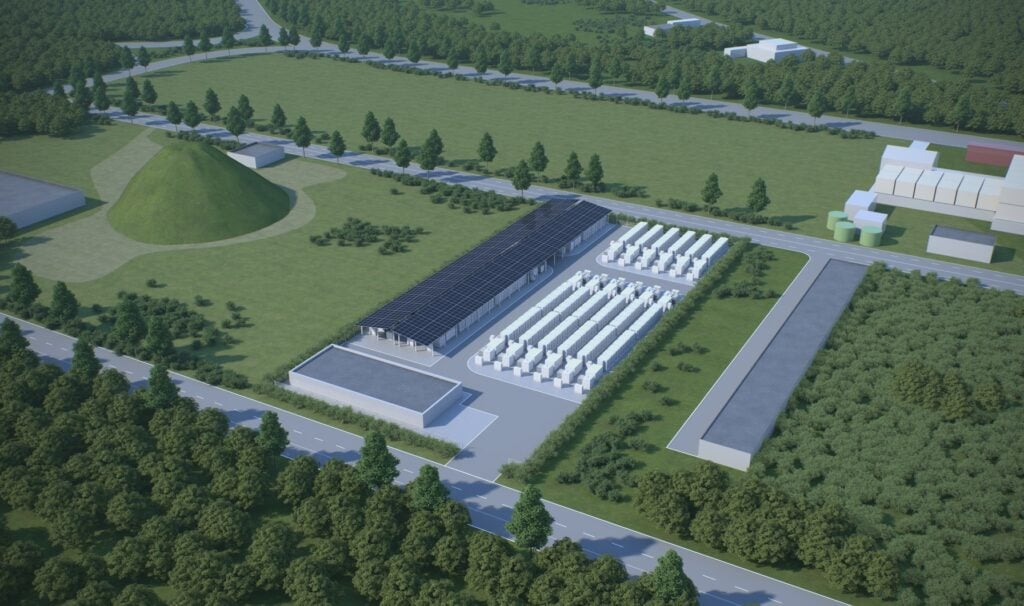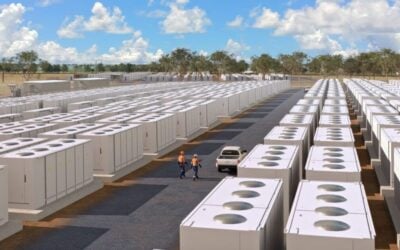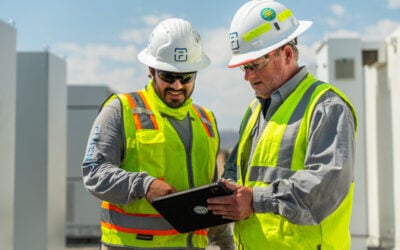
Fluence has signed a deal for its third battery energy storage system (BESS) project in Taiwan, its biggest in the region so far.
The global energy system integration and energy optimisation services company announced today that it is targeting completion of the project for the middle of next year.
Enjoy 12 months of exclusive analysis
- Regular insight and analysis of the industry’s biggest developments
- In-depth interviews with the industry’s leading figures
- Annual digital subscription to the PV Tech Power journal
- Discounts on Solar Media’s portfolio of events, in-person and virtual
At 100MW/100MWh, it will be the largest of its type in Taiwan to date, but it joins a growing number of battery systems in development and construction in the island territory.
State-owned electric power company Taipower has set a target for 1,000MW of BESS within its service areas by 2025 to help balance the grid, with Taiwan home to many industrial and high tech sector activities as well as having ambitious renewable energy deployment policy targets.
In the longer term, another company active in the market, Taiwan Cement Corporation said in May that it believes Taiwan’s goals of installing 27GW of renewables by 2025 and 45GW by 2030 means that as much as 5GW and then 9GW respectively will be required to effectively integrate that capacity to the Taiwanese grid and on its nearby islands.
For Fluence, the latest project follows an initial 6MW/6MWh BESS order in Taiwan that was announced in December 2021 and then another for a 60MW/96MWh BESS which Energy-Storage.news reported in April.
Each is with a different local partner company. Meanwhile, the energy storage technology company has now arrived at 4.8GW of BESS under contract or deployed worldwide, with a growing sideline in energy storage and renewable energy management and optimisation services.
“Taiwan has become one of the most active energy storage markets in the Asia Pacific region. The growth momentum of the energy ecosystem is driven by a clear target and objectives for renewable energy and net zero emission set by the local government,” Fluence SVP and APAC region president Jan Teichmann said.
For the 100MW order announced today, Fluence is partnering with Rich Electric, a Taiwan-headquartered power electronics and electrical engineering group founded in 1988. Rich Electric is involved in manufacture of AC motor drives, solar equipment, EV powertrains, inverters and other kit like energy management systems (EMS) for lithium-ion battery packs.
“Energy storage systems are indispensable to the deployment of grid-connected renewable energy systems,” Rich Electric chairman Eric Chen said.
The main market for grid-connected large-scale battery systems in Taiwan is through Taipower’s ancillary services product, Automated Frequency Control (AFC), which the utility began tendering for on a competitive basis in 2020.
AFC helps maintain frequency of the grid within close boundaries of 60Hz, with Taipower holding solicitations for four sub-markets ancillary services that also include spinning reserve and supplemental reserve.
Taipower is thought to be tendering for about 590MW of ancillary services between now and 2025, with other applications like renewables integration set to grow in importance in driving market activity in the meantime.
Taiwan’s Bureau of Energy, Ministry of Economic Affairs is also planning to deploy 500MW of battery storage co-located with ground mount solar PV plants, for example.
Other international companies to have entered the Taiwan grid-scale BESS market via the existing opportunities include Wärtsilä, Powin Energy and Taiwan Cement Corporation subsidiary, NHOA. The latter has been contracted by its parent to install 442MWh of BESS at industrial sites it owns.
Across the wider Southeast Asia region, Energy-Storage.news has reported on projects in territories including the Philippines, Singapore and Thailand in recent months. Most energy markets in the region are strongly regulated and often state-run, resulting in a relatively long run-up to the start of activity, which appears to now be taking off.






